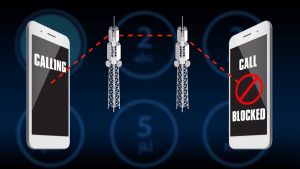
[ad_1]
SALT LAKE CITY, Utah – Americans received 3.3 billion robocalls in June, and well over a third of those calls were scams, according to the YouMail Robocall Index.
The shutdown of many calling centers both in the U.S. and overseas may have caused the volume of robocalls to plummet drastically in March and April, but they have started to pick back up. And while experts believe robocalls will not reach the same levels as before the pandemic, their future may be even more annoying, if not frightening.
FCC officials said all phone providers will have to use a call verification tool called Stir/Shaken by June 2021. The technology flags the spoofed phone numbers robocallers rely on to make their billions of spam calls every month as untrustworthy.
But that doesn’t mean we can start celebrating yet, said Alex Quilici, CEO of YouMail — a company that has developed an anti-robocall app and tracks robocalls.
“So, it (Stir/Shaken) lowers the chances of a spoof call getting through to a consumer,” Quilici explained. “But the spoofed calls are only a portion of the robocalls out there.”
He said stopping robocalls will always be a huge cat-and-mouse game where the callers will find some way to get around new obstacles.
“It’s very easy for a bad guy, or even a good guy, who wants to make robocalls to get hundreds of thousands of phone numbers that are real numbers and that aren’t going to show up as spoofed, and be blocked because there were spoof,” Quilici said.
Spoofing works like this: A bad guy takes their actual phone number and uses a program to disguise it. So, when you get the call, it shows up on your caller ID looking like it is from your bank, the power company, the IRS or even a local number from your neighborhood. This is how they trick people into answering their phones and eventually handing over money or personal information.
So crooks have figured out if they just register thousands of legitimate phone numbers that have not been spoofed, and then robocall you from the actual number – it will get through.
Quilici suspected all of this will lead to scams will become much less broad and target you directly.
“They’re going to be more targeted in their scams,” he said. “So instead of calling a hundred million people to find the million Chase Citibank customers who might fall for their scam, they’ll find a way to get that list of Chase credit card customers and call them directly and try their scam out that way. They’re going to get mailing lists of older people in a particular region and do a scam targeted to them. So, we see the world moving to very targeted scams but fewer robocalls in order to do those scams.”
So what can consumers do for now? Make sure you are using a robocall blocking app for one.
“Just like your computer — you’re not going to let it run without antivirus, you shouldn’t let your cell phone run without some sort of robocall or call protection app running on it,” Quilici advised.
Verizon, AT&T and T-Mobile all have free robocall blocking services for their subscribers.
Next, don’t answer the unknown calls and if you get a call for emergency help – even from a number you trust. Check the story out first and never wire money.
[ad_2]
Source link
